As an Amazon Associate, I earn from qualifying purchases
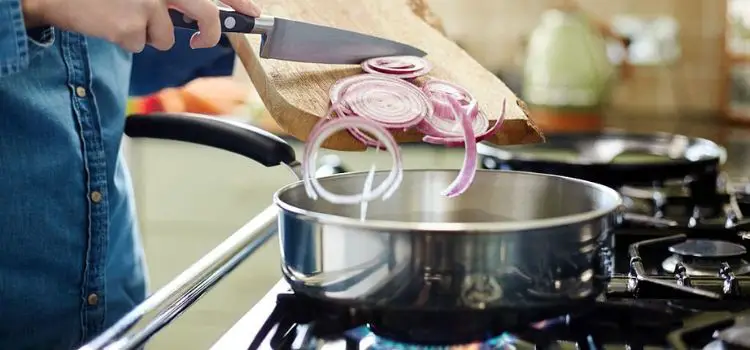
The choice of cookware plays a crucial role in our culinary endeavors, and stainless steel pots and pans have long been favored for their durability and versatility. However, a common query arises: Can I use metal utensils on stainless steel cookware without causing damage? In this exploration, we delve into the nuances of this topic, dispelling misconceptions and providing insights into the compatibility of stainless steel cookware with metal utensils.
By understanding the materials, potential risks, and best practices, you can confidently wield your metal utensils in stainless steel cookware, enhancing your cooking experience while ensuring the longevity of your kitchen essentials. Join us as we navigate through the realm of cookware compatibility and arm you with the knowledge to make informed choices for your culinary endeavors.
Understanding Stainless Steel Cookware
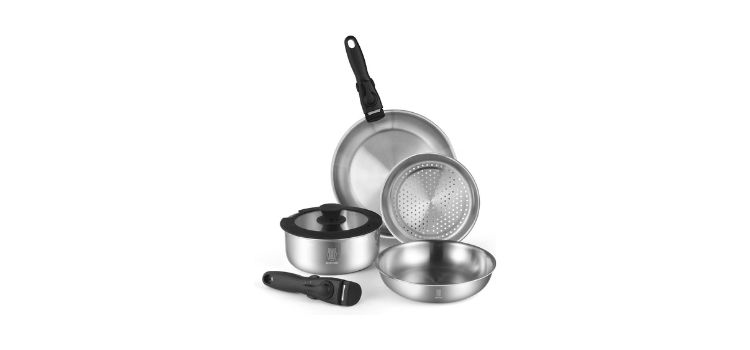
Stainless steel cookware is renowned for its durability and sleek appearance. It’s crafted from a combination of metals, primarily iron, chromium, and nickel, which give it corrosion resistance and heat-conductive properties. This type of cookware is favored by both professional chefs and home cooks due to its ability to distribute heat evenly and maintain high cooking temperatures.
Importance of Utensil Choice
Utensils play a significant role in the performance and longevity of your stainless steel cookware. Choosing the right utensils can impact not only the quality of your cooking but also the condition of your pots and pans over time. Many cooking enthusiasts are curious about whether metal utensils can be safely used with stainless steel cookware.
Pros of Using Metal Utensils
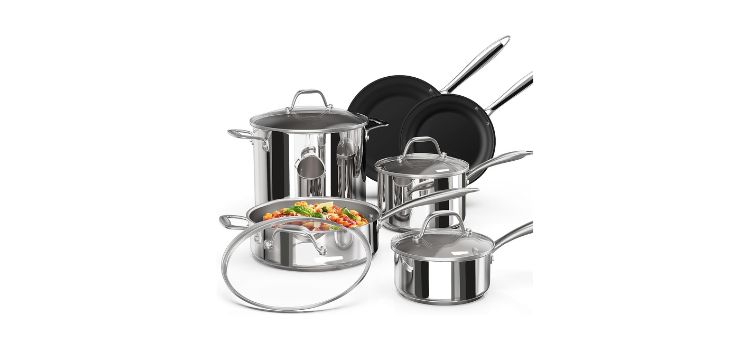
Durability and Strength
Metal utensils, such as stainless steel or cast iron spatulas and tongs, are renowned for their durability and strength. They can withstand high temperatures and heavy use without easily breaking or bending. This makes them ideal for tasks that require a bit more force, such as flipping and searing.
Effective for Cooking Techniques
Metal utensils are excellent for certain cooking techniques, such as searing, deglazing, and flipping foods. Their sturdy edges can help scrape up flavorful browned bits from the bottom of the pan, enhancing the overall taste of your dishes. This ability to create fond is highly valued in the culinary world.
Cons of Using Metal Utensils
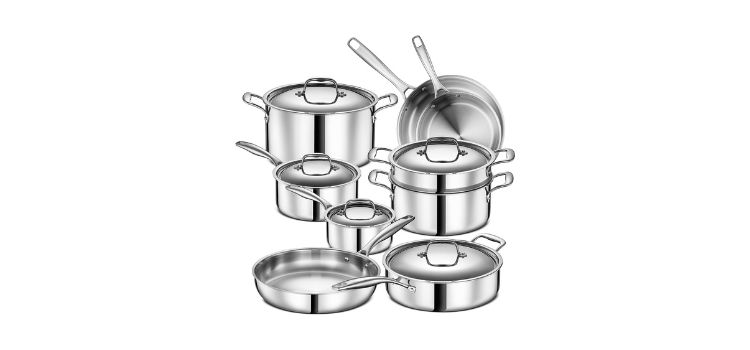
Scratching and Surface Damage
One of the main concerns when using metal utensils with stainless steel cookware is the potential for scratching the cooking surface. While stainless steel is resistant to rust and staining, it is not entirely scratch-proof. Over time, the use of metal utensils can leave visible marks on the surface of the cookware, affecting its appearance.
Risk of Transferring Metals
Another consideration is the possibility of metal utensils transferring small amounts of metal to the food during cooking. While stainless steel cookware is generally safe for cooking, the use of abrasive metal utensils could lead to the release of trace amounts of metals into your meals. This is especially a concern if you have allergies or sensitivities to certain metals.
Maintaining Stainless Steel Cookware
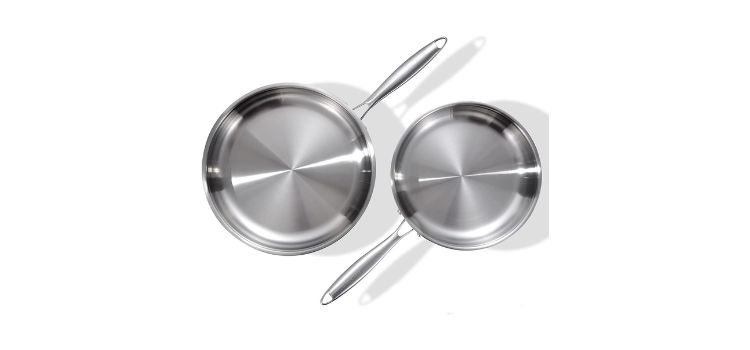
Proper Cleaning Techniques
To ensure the longevity of your stainless steel cookware, it’s essential to clean it properly after each use. Use warm, soapy water and a non-abrasive sponge to gently clean the surface. Avoid using harsh abrasive cleaners that could worsen scratches or damage the stainless steel’s protective layer.
Learn More About Frying Pan vs Saute Pan – Comparison in 2023
Seasoning and Polishing
Periodically seasoning and polishing your stainless steel cookware can help maintain its luster and minimize the appearance of scratches. Applying a small amount of cooking oil and gently rubbing it onto the surface can create a protective layer that enhances the cookware’s shine.
Alternatives to Metal Utensils
Wooden Utensils
Wooden utensils are a popular alternative to metal when it comes to using cookware with delicate surfaces. They are gentle on the cookware and reduce the risk of scratching. However, wooden utensils may not be as effective for certain cooking techniques that require more precision or strength.
Silicone Utensils
Silicone utensils are another gentle option that provides flexibility and heat resistance. They are less likely to scratch the surface of your stainless steel cookware and are suitable for high-heat cooking. Silicone utensils come in various shapes and sizes to cater to different cooking needs.
Preserving the Longevity of Cookware
Storing and Stacking
Properly storing your stainless steel cookware is essential for preventing scratches and damage. To avoid scratches, place a soft cloth or paper towel between stacked pots and pans. This prevents direct contact between surfaces that could lead to abrasions.
Temperature Considerations
Be mindful of extreme temperature changes when using stainless steel cookware. Rapidly heating or cooling the cookware could lead to warping or damage. Allow your cookware to adjust to room temperature before cleaning or storing it.
Expert Recommendations
Cookware Manufacturers’ Guidelines
Different brands and models of stainless steel cookware may have specific recommendations for utensil use. Refer to the manufacturer’s guidelines to ensure you’re using utensils that are compatible with your cookware and won’t void any warranties.
Seasoned Cooks’ Advice
Experienced cooks often have valuable insights based on their years of culinary exploration. Many seasoned chefs prefer using a mix of utensils, combining the strengths of metal, wood, and silicone to meet different cooking challenges while preserving their cookware.
Addressing Common Myths
Myth: Metal Utensils are Always Harmful
While it’s true that metal utensils can potentially scratch stainless steel cookware, not all metal utensils are created equal. Utensils made from softer metals or with rounded edges are less likely to cause noticeable damage. Proper care and gentle use can mitigate the risks associated with metal utensils.
Myth: All Stainless Steel is the Same
Stainless steel cookware can vary in quality and composition. Cheaper stainless steel cookware may be more susceptible to scratching, while higher-quality options are designed to be more durable. Invest in well-made stainless steel cookware for better performance and longevity.
Conclusion
In the debate over whether metal utensils can be safely used on stainless steel cookware, the key lies in balance and proper care. While metal utensils offer strength and versatility, they also require mindfulness to prevent scratching and minimize the risk of metal transfer. Alternatives like wooden and silicone utensils provide gentler options, especially for delicate cooking surfaces. By understanding your cookware, using the right utensils for the job, and practicing proper maintenance, you can enjoy the benefits of stainless steel cookware for years to come.
FAQs
Manufacturers’ warranties may vary, but using metal utensils in a reasonable manner typically wouldn’t void the warranty.
Utensils with rounded edges or those made from softer metals like aluminum are generally less likely to cause noticeable scratches.
It’s recommended to avoid metal utensils on non-stick surfaces, as they can damage the coating over time.
Gentle polishing with a mixture of baking soda and water or using commercial stainless steel polish can help minimize the appearance of scratches.
Stainless steel cookware is generally safe for cooking. However, individuals with metal allergies or sensitivities should be cautious, as trace amounts of metals can transfer to the food.
Leave a Reply